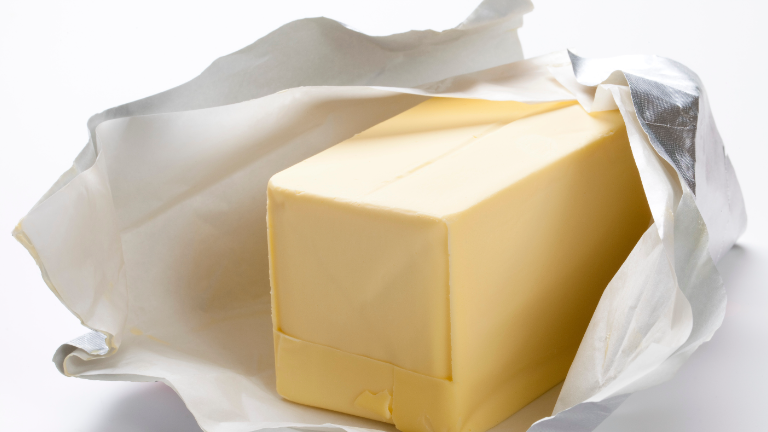While fake butter worth 5 million lira was seized in Bayrampaşa before Ramadan, Food Certified Engineer Lecturer Eda Şensu Demir stated that inspections should be increased and said, "There should be more instant inspections or deterrent penalties." She also said that fake butter deceives consumers and that different toxic substances may enter the food during production, which is harmful to human health.
Shortly before Ramadan, 3 tons of fake butter with a market value of approximately 5 million lira was seized in Bayrampaşa. It was determined that what was seized was not butter, but vegetable oil that was turned yellow with chemicals added to it; Oils determined to be harmful to human health were destroyed. During the operation, two people at the workplace were detained by police teams. The large amount of fake butter was seized in the center of the mega city brought to mind its health hazards and what should be done at the checkpoint. While the inspections were carried out by the Ministry of Commerce and the Provincial Directorate of Agriculture, Istanbul Gelişim University (IGU) Food Certified Engineer Lecturer Eda Şensu Demir said that these inspections should be increased and deterrent penalties should be introduced. Şensu also said that fake products deceive consumers and that since hygiene and sanitation rules are not followed during production, different toxic substances may enter the food, which is risky for human health. Şensu also warned consumers to get into the habit of reading labels.
Food safety means keeping all foodborne illnesses away from microbiological, physical, and chemical contaminants during the production, preparation, storage, and delivery of food to consumers, says Food Certified Engineer Lect. Eda Şensu Demir. "Actually, the food sector is a very important sector for us. Of course, we can say that it is the sector most affected by economic fluctuations." That's why we can see a lot of cheating, imitation and adulteration in foods. If we talk about adulteration, we can express it as the preparation of food by adding an ingredient that should not be included in the food or by removing some or all of an ingredient that is important for that food. Of course, the manufacturer gains an unfair advantage here. Şensu Demir said: The manufacturer deceives the consumer. Here, we can see products such as honey, dairy products and meat products among the most imitated or adulterated products. Butter also falls into this group. It is very important for us. Butter is a valuable product. We can say that butter is prepared as 80 percent fat and 20 percent water. The most common trick we see is adding vegetable oils such as sunflower, palm or corn, or adding margarine. "Products such as starch or potatoes can be added to butter instead."
"We need to be very careful about the products we buy"
Demir also mentions another form of adulteration, which involves adding colorants or dye substances. "Usually, to distinguish between imitation or adulteration in a product, analysis is required. This means looking at its chemical oil composition." When the consumers looks from the outside, they cannot understand the fraud. Its chemical composition should be examined through analysis. However, the melting temperature of the oil can give an idea. Since butter melts at body temperature, it will retain its hardness a little better at room temperature. Butter with vegetable oil added will spread easily at room temperature. Of course, this could be a sign. Apart from that, analyzes must be made. First of all, fake products are deceptive to consumers. Since hygiene and sanitation rules are not followed during production, different toxic substances may come into the food from outside. Microbiological contaminants may come, and since this is not monitored, we are actually at risk. That's why we need to be very careful about the products we buy," she said.
"Inspections must increase"
Food Certified Engineer and Lecturer Eda Şensu Demir, who mentions the emergence of advanced forms of counterfeiting, says, "Large companies or chain supermarkets have food safety standards such as ISO, BRC, etc. Due to these standards, they are required to analyze the products they sell or produce. We can buy these products with confidence because of this. Apart from that, we should definitely not consume openly sold products. Especially online sales have started to increase and people are ordering products from villages to access healthy food. However, we can say that there is no control whatsoever. So at this point, inspections need to be increased further. "There needs to be more instant control or there needs to be deterrent penalties."
"Consumers should definitely read the ingredients when purchasing a product"
Demir, who advises consumers on reading labels, stated, "It will be better for the health of the consumer to know what they are eating, where the product is produced, and to follow the business registration or approval information by reading the ingredients section when purchasing a product."
 Created Date: : Tuesday, March 12, 2024
Created Date: : Tuesday, March 12, 2024
The photography exhibition themed “In the Paw Prints,” organized as part of...
Istanbul Gelisim University (IGU) Software Engineering Department senior st...







